We deliver news, articles and updates on Mongolia every day in English and Mongolian
Just visit your English version to read the current news. Infomongol.mn also provides monthly, quarterly and annual reports on Mongolia for your areas of interest. We would be very delighted to serve you and be your long term news source.
 The new government says it is resolved to bring mining and heavy industry together. How do you see the outcome of this decision?
The new government says it is resolved to bring mining and heavy industry together. How do you see the outcome of this decision?
All light and heavy industrial factories were under the previous Ministry of Industry, and now - with the new government, we are separating the policies of light and heavy industry. New and upcoming heavy industrial plants rely upon mineral resources. When we talk about mining, some people think of exploration, some mean mining. Yet there are also processing plants adding value, and all of these must be tied up with the common policy carried out by the Ministry of Mining and Heavy Industry, which means that the Ministry should coordinate all the stages of development, starting from exploration, economic value, processing, etc.
Mongolia exports only a few minerals to the market, most of which go to our southern neighbor, China. So we need to determine policy depending on demand. There are many opportunities for us, and the first one is to determine how much wealth Mongolia has. Foreign and local companies conduct extensive exploration to discover and determine resources. Even the state allocates financing for exploration. It’s quite risky and most exploration is conducted by private entities who carry the weight of their risks. Therefore, the state must conduct exploration fairly and consistently. Mongolia has vast territory which hasn’t been explored, and we need to know what is underneath Mongolia and whether we can use it for development. When commodity prices go down, exploration drops as well, and vice versa. If policy is consistent and transparent, investment flows in, which is happening now. In addition to that, uncertain legislation has influenced this decline. But this is cyclical, and commodities will go up. And Mongolia must have transparent and consistent policies and procedures when prices escalate. Statistics show that only 5% of 1,000 exploration licenses have great potential to be feasible deposits. For example, prior to the discovery of Oyu Tolgoi, only the potential of a copper deposit was mentioned in documents.
Only a few resources are confirmed to be reserves during exploration. And we have to carefully think about what policy is needed, who will buy the deposit, and whether we can sell mined products at competitive prices. If we can’t sell them, then it’s not feasible. We can’t compete with other countries with better infrastructure or better geographical locations which sell the same product at a lower price. And one thing that we have to concentrate on is feasibility studies, which can help answer the questions about whether or not the project will contribute to the development of Mongolia, and if we can benefit from taxes and employment.
The product will be delivered to the customer after it is mined, and the first concern is infrastructure. We haven’t yet resolved railway issues, and all exported products are transported by road, which is 3 to 4 times more expensive than railway. And again, the competitiveness. Water, energy, rehabilitation, and much more are directly associated with mining. So, we believe that we have conditions to tie up all these with a single policy.
What do the investors require from us?
Every country has its own legislation, and instead of just inviting investors here, we have to have clear and well-defined laws that are explained in the same way. Investors should understand what to do and what not to do, and how to evaluate their risks. Secondly, we have to compare ourselves to other countries to attract investment in mining. Strong, consistent, and mutually beneficial long-term policy should be in place where we’ve failed. Revision of an investment agreement means that we haven’t yet instilled this competence compared to other countries. Whether it’s state or private entities, they go for negotiations to benefit. If the deal is 50:50, it means it’s a fair and successful deal.
Does Mongolian legislation provide fair and consistent opportunities?
Laws encapsulate general regulations, and all deals must be done within the law. But legislation and decisions are updated on a timely basis as conditions change, as well as in response to technological developments. Mining, it could be said, is a technology sector. There are few countries in the world which strive to rely on mining and attract investment. About 50 countries out of 200 are mineral-rich, and we have to watch for ourselves where we are on the list. Minerals are limited and few countries are willing to share all these.
There is a Canadian junior Erdene Resources, and during the Discover Mongolia forum we had a discussion with Mr. Peter Akerley, who said that the company is ready for mining but procedures and approvals may take longer than expected.
We had a meeting with the CEO, and with the new transparent and stable policy of the government everything will go smoothly.
Source: Mining & Money magazine
For Mongolian version please visit here
Монгол эхийг энд дарж уншина уу






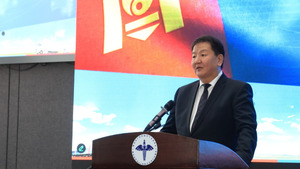



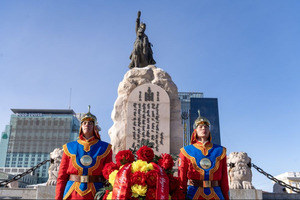

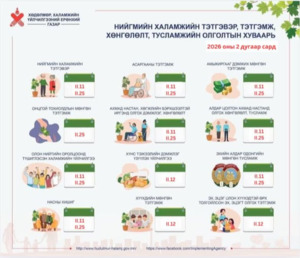


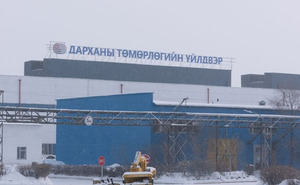





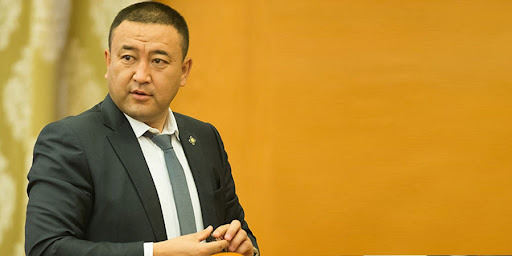

Сэтгэгдэл байхгүй байна